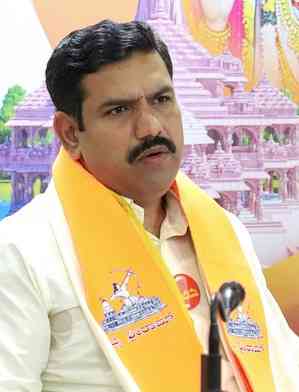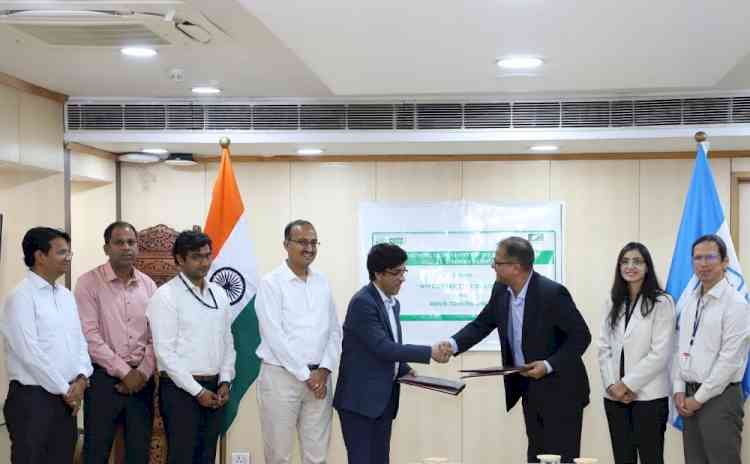Dr. Arvind Subramanian spoke on topic of `The Economic Survey of India 2014-15'
Author(s): City Air NewsNoted Economist and Chief Economic Advisor to the Government of India, Dr. Arvind Subramanian delivering the prestigious Panjab University (PU) Colloquium at PU on Tuesday. PU Vice Chancellor Prof Arun Kumar Grover...


Noted Economist and Chief Economic Advisor to the Government of India, Dr. Arvind Subramanian delivering the prestigious Panjab University (PU) Colloquium at PU on Tuesday. PU Vice Chancellor Prof Arun Kumar Grover is also seen in the pictures.
Chandigarh, April 29, 2015: Noted Economist and Chief Economic Advisor to the Government of India, Dr. Arvind
Subramanian today said that Jan Dhan-Aadhar-Mobile (JAM) trinity solution would enable in targeting the subsidies directly to the poor and consequently plug the leakages. This would help in achieving inclusive growth in a much faster and equitable manner.
Dr Subramanian was delivering the prestigious Panjab University (PU) Colloquium at PU on Tuesday. Addressing, the 25th colloquium of PU, Dr. Arvind Subramanian spoke on the topic of “The Economic Survey of India 2014-15”. PU Vice Chancellor Prof Arun Kumar Grover presided over the public lecture in which large number of teachers, research scholars, economic students and officers of the University participated.
Referring to the statistical data, Dr Subramanian said that fiscal cost of various subsidies is Rs. 3,77,616 crore, which is 4.24 percent of the GDP. But most of the subsidies are being enjoyed by the non-intended recipients. He particularly referred that kerosene subsidies cost Rs. 20,415 crore but 41 percent of PDS kerosene allocation
is lost as leakage and BPL households consume only 46 percent of the remainder.
Similarly, LPG cost Rs. 23,746 crore but poorest 50 percent consume 25 percent of LPG only. He also referred to subsidies in railways, fertilizers, rice and wheat PDS, electricity and sugar. He said that an effort in this direction has begun through the cash transfer on LPG.
Dr. Subramanian described 14th Finance Commission as watershed moment for federalism and public finances. The tax devaluation on states have been increased from 32 to 42 percent, which will be bring more funds to the states. Accordingly, the states can become bigger players in the growth story of India.
Dr Subramanian said that today India stands out as one of few positive bright spots, which have shown positive growth. He said that inflation situation is improving as the inflation has come down, which was quite high in last five-six years. He predicted that India would grow at 8.1 to 8.5 percent growth rate in 2015-16. We should see India as a recovering economy but not as a surging economy, he added.
Dr Subramanian also praised the achievements and rich legacy of the PU. He congratulated the students to be part of the great University.
The lecture was followed by interesting questions and answers session in which many issues got discussed. Prof Upinder Sawhney, Prof Archana, Indian Economic Services Officers Dr Rajat Sachar and Mr. PK Abdul Kareem also spoke on the occasion. / (SK Vyas, Jalandhar)
Date:
Wednesday, April 29, 2015

 cityairnews
cityairnews 















